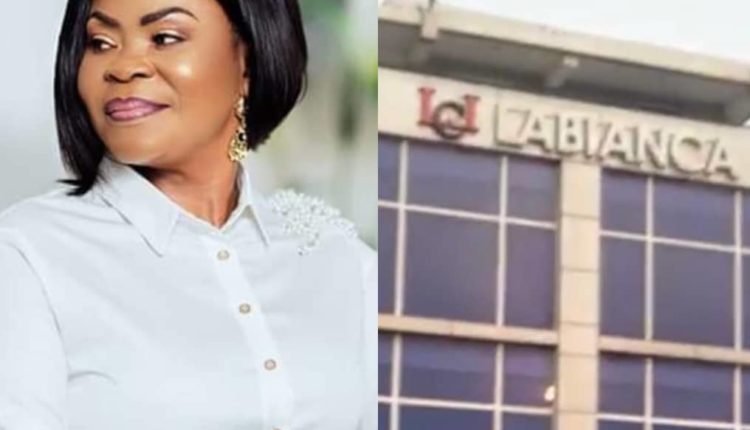Political Scientist and co-founder of the Ghana Center for Democratic Development (CDD), Prof. Emmanuel Gyimah-Boadi has raised red flags over what he described as a “horrible decline” in the ethics of appointments in Ghana’s current State governance and democratic practices.
He said there is an “alarming decline in government standards” and has therefore suggested the need for “an ethic czar at the Presidency, within the Executive branch, at the Council of State and other very important decision making and public resource allocation agencies and institutions in the country.”
Prof. Gyimah-Boadi was speaking in reference to public calls for the immediate resignation of Council of State member, Eunice Jacqueline Buah Asomah-Hinneh, after the Office of the Special Prosecutor (OSP) officially indicted one of her private companies, Labianca Company Limited, for corruption-related offences and forced it to pay an amount of GHC1,074,627.15 to the State.
Eunice Jacqueline Buah Asomah-Hinneh, is also a member of the Board of Directors of the Ghana Ports and Harbours Authority (GPHA) and her company, Labianca, mainly imports and distributes frozen foods.
The said amount of GHC1,074,627.15 was paid by Labianca Limited on March 31 this year, into the Asset Recovery Account of the OSP after investigations confirmed there had been a deliberate shortfall in revenue amounts the company was to have paid to the State but did not pay due to a possible influence peddling by the Council of State member.
A statement released by Prof. Gyimah-Boadi on the development noted:
“The ongoing public dispute between the Office of the Special Prosecutor (OSP) and Labianca Company Limited (‘Labianca’) raises a number of troubling questions about the state of governance in Ghana today. The dispute is over questionable dealings between Labianca and the Customs Division of the Ghana Revenue Authority. The Chief Executive of Labianca is Ms. Eunice Jacqueline Buah Asomah-Hinneh, who happens to be a member of the Council of State.
“Firstly, should the President appoint an individual to serve on the board of a public agency with whom that individual has private business dealings? And if so, doesn’t that set that person up for conflict of interest?
“Secondly, is it appropriate for the President to appoint a member of the Council of State to a state agency board? Was there an objectively compelling public interest-related reason for the President to make such an appointment?
“And finally, was the appointment run by the Council of State? And if the answer is yes, doesn’t the Council of State’s approval of the appointment of one of its members to a state agency board position smack of institutional self-dealing on the part of Council of State?
“In conclusion, it is obvious that the entire sordid episode speaks specifically to the entrenchment of incumbent leaders and political elite capture of Ghana; and generally, to the alarming decline in governance standards in our 4th Republic.
“Therefore, as a recommendation, this unfortunate event highlights the urgent need for an ethics czar at the Presidency, Executive Branch, Council of State, and other important decision-making and public resource allocation agencies and institutions”, the statement added.
Meanwhile, a concerned citizen, Frank Asare, the whistle-blower who petitioned the OSP to commence investigations into the conduct of Eunice Jacqueline Buah Asomah-Hinneh and her Labianca Limited has added his voice for her resignation or dismissal.
“Members of the Council of State are supposed to exhibit high levels of integrity. By using her influence as a Member of such a prominent State institution for corrupt influences, the indicted member cannot continue being on the Council of State.
“In the coming days, the petitioner will petition the appropriate bodies for her removal from the Council of State”, Frank Asare noted.
The OSP among other sad findings, revealed that there is strong evidence to suggest that a decision by the Deputy Commissioner for Customs in charge of operations, Mr. Joseph Adu Kyei at the Customs Division of the Ghana Revenue Authority (GRA) to issue a customs advance ruling for Labianca Company Limited which led to the revenue shortfall “was procured through influence peddling or trading of influence by Ms. Asomah-Hinneh by employing her position as a member of the Council of State and a member of the Board of Directors of Ghana Ports and Harbours Authority.”
The report said “On 21 March 2022 the Special Prosecutor issued an interim directive to Labianca Company Limited to pay an amount of One Million Seventy-Four Thousand cedis Six Hundred and Twenty-Seven cedis Fifteen pesewas (GHC1,074,627.15), representing the short collection or shortfall of revenue arising from the issuance of the unlawful customs advance ruling by the Deputy Commissioner for Customs in charge of operations, Mr. Joseph Adu Kyei into the Asset Recovery Account of the Office of the Special Prosecutor.
The report revealed how although the company was in operation since 2014, it was only in 2017 after Eunice Jacqueline Buah Asomah-Hinneh had become a politically exposed person that the anomaly started.
“There was not much engagement with the Customs Division in the first three (3) years of the company’s operations beyond the settlement of standard customs duty and other tax obligations until 2017 when the company actively commenced applications to the Customs Division for the acceptance by the latter of the values of frozen foods it intended to import. By the time the company commenced the applications, Ms. Asomah-Hinneh had been elected a member of the Council of State representing the Western Region and appointed a member of the governing board of Ghana Ports and Harbours Authority – positions she held at all material times. On this reckoning, Ms. Asomah-Hinneh is a politically exposed person as defined under section 79 of Act 959.
“It would appear that the coincidence of the indicated applications and the public office appointments of Ms. Asomah-Hinneh was not altogether accidental. There is strong evidence to suggest that the events are a product of influence peddling”, the OSP established.


Comments are closed.